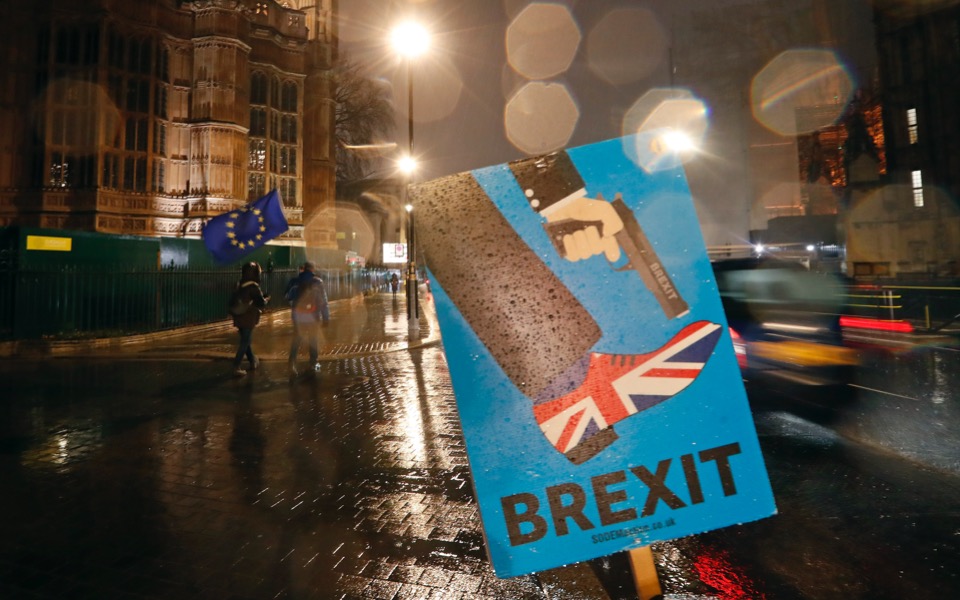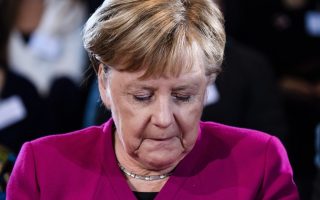Britain in crisis

The British political system is in crisis – its most serious since the Second World War. One of the biggest and most complex questions of all was put to the people in the Brexit referendum in 2016 as a simple yes/no question, with no means to establish what “no” actually meant. Worse, the referendum campaign was a frenzy of lies and populist fears. Theresa May's mantra of “Brexit means Brexit” was always an absurdity that would eventually come unstuck, but it also delayed a proper examination of the various options.
Parliament had been overwhelmingly in favor of the United Kingdom remaining a European Union member, and a majority of its MPs today probably continue to favor the softest, weakest form of Brexit. An even larger proportion see Brexit with no deal as being an economic calamity. The government machine – the much-lauded civil servants of TV's “Yes, Minister” fame – similarly was asked to prepare a Brexit deal that it knew was detrimental to the national interest. Britain's ambassadors have been obliged to “lie for their country,” as the saying goes, on an unprecedented scale, in front of bemused foreigners.
Without modern parallel, the political system was, and remains, divided and is currently unable to produce a Brexit outcome.
Theresa May made the process of reaching a deal even more difficult than it needed to be. On becoming prime minister, she incautiously set down a number of “red lines” or principles she would not compromise on, which narrowed the scope of what Brexit deal was possible. Though gradually she was forced to contradict herself on a number of points, her eventual compromise deal pleased no one.
Uniquely, a “taking back control” logic led to a deal in which the UK risked being locked into a customs union with the EU that it could not decide, at some point in the future, to withdraw from, unless the EU agreed to let it do so. Ukraine or Turkey have the unilateral right to tear up their current EU agreements at some stage if they decide to do so. Greece, like any full EU member, may decide to exit. What ties the UK is the unique circumstances of Ireland: Only a customs union, or some still to be designed border technology, can avoid a hard border and a renewed threat to peace on that troubled island. Unfortunately, no one thought to tell the people of the Irish border problem in the referendum. Never has democracy been so badly informed.
On January 15, Parliament inflicted the biggest defeat on Theresa May that any government has ever suffered. Still she appears to be carrying on her established track, with adjustments that are too small to change the impasse. It's not her personality to give up, but also not to open up to others and have a more inclusive process to try to agree a new compromise. Her choice is to try to do a deal with the opposition parties – not her natural instinct – or to hope that more of her allies come around to support her deal soon for fear that Brexit might not happen.
With a system malfunction, Parliament may seek to take the initiative over Brexit policy away from the government. It could do so by voting on the various alternative options, such as a Norway-type EU deal. This would then define the agenda for the government. It could give the right to define a Brexit deal for UK negotiators to a parliamentary committee of senior MPs from across all parties. And, it might decide to protect itself from fresh populist attack by insisting on a second referendum. Any of these outcomes would reflect a government that had lost control of its most central of policy tasks.
I doubt if Brexit can actually be stopped. The question is how soft or hard a Brexit might be the result. Some pro-EU figures see a Norway-type deal as leaving open the possibility of the UK returning as a full member in the future. I think such a prospect is unlikely. With the economic ties of Norway to the European single market, I doubt the British people could be persuaded that what it's missing from not being a full member is worth rejoining the club.
With Brexit, Britain's relations with its current European partners must suffer. The task for British diplomacy is to limit the damage. To argue that there are bright new opportunities to strengthen the bilateral ties after Brexit with France or Greece, for example, is to foster illusions and risk credibility. A Norway-type outcome would be the least consequential, but still not a positive gain to our bilateral relations.
Nor can the UK's Brexit dilemma be easily equated with the anti-Memorandum turmoil in Greece in 2015. Britain hasn't faced the exceptional attack on its sovereignty or the enforced austerity that Greece had to grapple with. Europe has certainly not caused the bankruptcy or the unemployment that can be attributed to the bailouts. Instead, the UK has had multiple optouts from common EU policies. Europe's intrusion has been far less. In normal times, Greece has had no problem with shared sovereignty in the EU.
Until the British political system produces a Brexit deal, the UK will continue to puzzle its neighbors – a self-indulgent system, an irrelevance. Brexit hasn't been caused from outside; rather, it's our own struggle with the world as it is. Be patient, while we come through our breakdown.
* Kevin Featherstone is director of the Hellenic Observatory at the London School of Economics.





